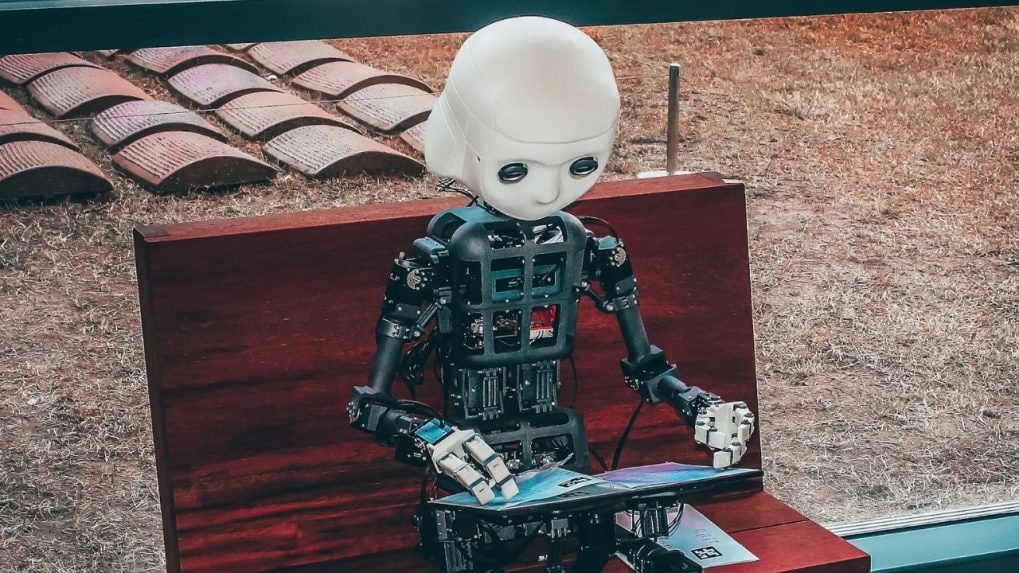Advertising
From Pink Slips to Silent Sidelining: Inside adland’s layoff and anxiety crisis

The world of Artificial Intelligence has only begun to affect human lives. In times like these, staying up-to-date with the AI world is of utmost importance. Storyboard18 brings you the top AI news of the day.
Google's new "Storybook" AI tool creates illustrated stories, but with quirky results
Google has launched a new "Storybook" feature within its Gemini AI chatbot, allowing users to create 10-page illustrated stories simply by describing them. While the tool offers a promising way to generate customized content for children, it's already showing some of the bizarre quirks often associated with AI-generated art.
The feature lets users select specific art styles—including claymation, anime, and comics—and even upload their own images for the AI to reference. Gemini can then create a story with short paragraphs of text and accompanying illustrations, which it can also read aloud.
However, a closer look at the stories reveals some strange inconsistencies. One story about a catfish in an aquarium generated an image of a fish with a human arm. Other examples include an AI-generated image of spaghetti sauce that resembled a "cartoon crime scene" and a TV screen shown on the wrong side in a picture of a mother and son.
Microsoft’s new AI agent independently detects and blocks malware
Microsoft has introduced a groundbreaking artificial intelligence system capable of autonomously identifying and blocking malware, without any human intervention. Named Project Ire, the prototype is designed to reverse-engineer software files in order to determine whether they are malicious—representing a significant advancement in the field of cybersecurity.
According to a detailed blog post from Microsoft, Project Ire is able to conduct a complete analysis of a software file even when it has no background information regarding the file’s origin or intended function. The system relies on a sophisticated toolkit—including decompilers and behavioural analysis tools—to inspect code, understand its operations, and decide whether it poses a security threat.
The project is the result of a collaborative initiative between Microsoft Research, Microsoft Defender Research, and Microsoft Discovery & Quantum teams.
OpenAI urges students to see ChatGPT as learning aid, not answer shortcut
OpenAI is challenging students to move beyond using AI as a simple "answer machine" and instead embrace it as a critical tool for future career success. Leah Belsky, the company's Vice President of Education, emphasized that AI literacy is now a foundational skill for graduates entering the modern job market.
On a recent company podcast, Belsky stated that workers who effectively use AI are already proving to be more productive. She argued that learning to use AI is no longer optional for students. "Any graduate who leaves an institution today needs to know how to use AI in their daily life," she said, stressing its importance in both job applications and new roles.
Belsky cautioned that passive use of AI hinders learning. To foster a more thoughtful approach, OpenAI has launched "Study Mode" in ChatGPT. This new feature, developed with educator input, uses a Socratic method to guide students with questions and tailored explanations, encouraging them to build a deeper understanding rather than just copying solutions. The tool was extensively tested in India during its beta phase and is now available globally.
OpenAI launches free customizable AI models for developers
OpenAI has released two new open-weight AI language models, named gpt-oss-120b and gpt-oss-20b, marking its first open-weight release since GPT-2 in 2019. The announcement was made on August 5, with OpenAI positioning the models as low-cost, customizable alternatives for developers and researchers.
The text-only models are designed to run efficiently on different hardware, with gpt-oss-120b optimized for a single Nvidia GPU, and the lighter gpt-oss-20b capable of operating on consumer laptops with 16GB RAM. Both models are available for free via Hugging Face and GitHub under the Apache 2.0 license, and can also be used through tools like LM Studio and Ollama.
The move places OpenAI in direct competition with recent open-weight releases from Meta, Mistral AI, and China’s DeepSeek, as part of a growing trend toward transparency and developer autonomy in AI.
Elon Musk’s Grok Imagine launches 'Spicy Mode' for AI‑generated adult videos
xAI, the artificial intelligence company founded by Elon Musk, recently rolled out Grok Imagine, a new multimodal tool that lets users turn text or images into animated video clips with audio. Beginning August 6, 2025, this feature entered beta testing on the iOS app and is available to SuperGrok and Premium+ subscribers on X (formerly Twitter).
Grok Imagine supports up to 15‑second video generation, and includes four stylistic options—Custom, Normal, Fun, and Spicy. The “Spicy” mode, in particular, allows users to generate NSFW content, including risqué or semi‑nude visuals, albeit with blurred moderation applied in.
Just last month, the company introduced an anime-inspired AI companion with a hyper-sexualized vibe. Musk has always pitched Grok as an "unfiltered" alternative to other chatbots, and it looks like the image generator is following the same path for better or worse.
From purpose-driven work and narrative-rich brand films to AI-enabled ideas and creator-led collaborations, the awards reflect the full spectrum of modern creativity.
Read MoreLooking ahead to the close of 2025 and into 2026, Sorrell sees technology platforms as the clear winners. He described them as “nation states in their own right”, with market capitalisations that exceed the GDPs of many countries.